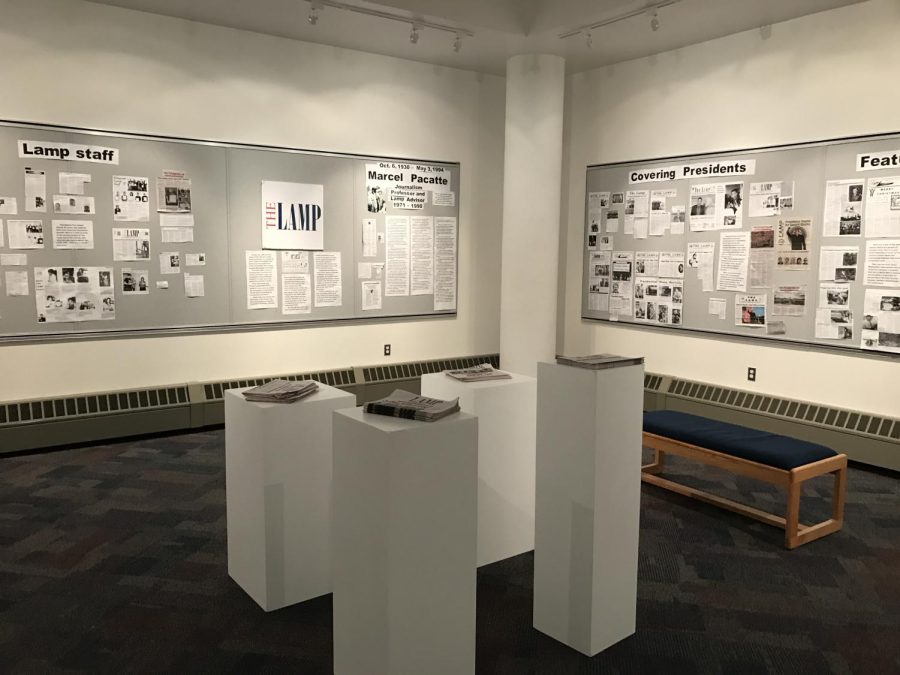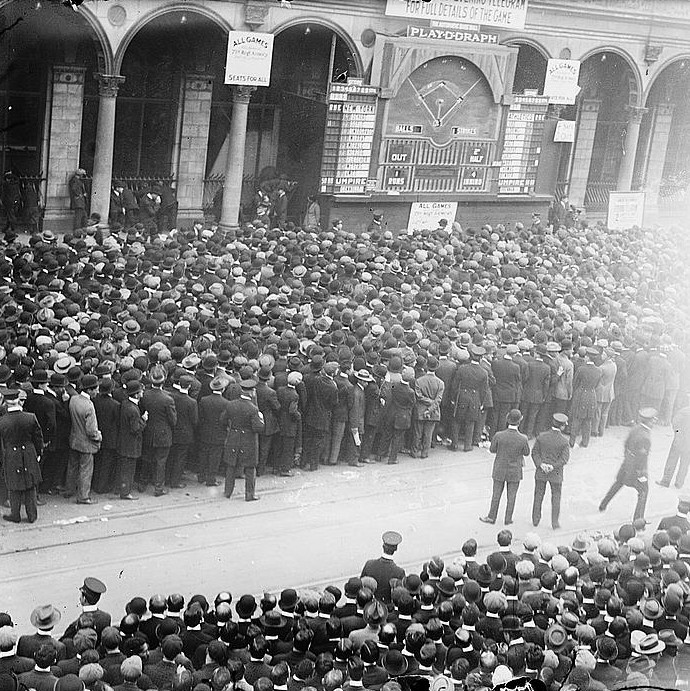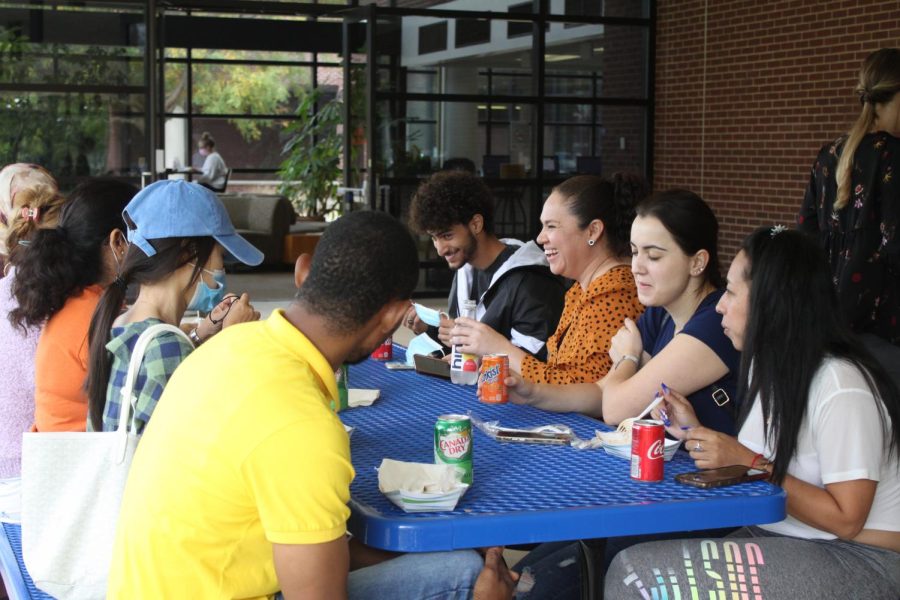By Andrew Paisley
Lamp staff
Janice Earl was born with what seemed like a constant cold and congestion in her chest.
“The doctor would put me on medicine, and I would clear up right away, but as soon as I was finished with the medicine, the cold symptoms would come right back.” Earl said.
It wasn’t until the age of 10 months, that doctors diagnosed Earl with Cystic Fibrosis.
Taylorville Memorial Hospital was honored to have Earl, a double lung and kidney recipient, speak March 1. The Decatur native was there to promote awareness for organ and tissue donation.
CF is a progressive genetic disease that causes persistent lung infections and over time limits the ability to breathe. In people with CF, a defective gene causes a thick buildup of mucus in the lungs and pancreas. The mucus in the lungs clogs the airways and traps bacteria leading to infections, lung damage, and eventually respiratory failure. In the pancreas, the mucus prevents the release of digestive enzymes that allow the body to breakdown and absorb food.
Earl did pretty well handling the disease as she grew up.
“I had frequent colds and had to do breathing treatments every day at home to help keep my airways open and help me move some of the mucus out, and I took medicine that would help breakdown and digest the food I ate.” Earl said.
At 8 years old, the mucus in Earl’s lungs built up so much that she was diagnosed with pneumonia. Her doctor hospitalized her for two weeks and gave her IV antibiotics.
“The doctor explained to my family and I that since CF is a progressive disease, I would most likely have to go to the hospital periodically for IV antibiotics just to help keep the infections down, so we called these trips to the hospital my ‘tune ups’.” Earl said.
Towards the end of her junior year in high school, Earl’s doctor explained that most of the antibiotics available weren’t doing anything for her and that her health was just continuously getting worse.
“He said basically there wasn’t anything else he could do for me, and he suggested we think about lung transplantation.” Earl said.
The doctor wanted to send Earl’s medical records to the lung transplant program at Barnes Hospital in St. Louis. Earl and her family discussed the idea, and decided it was definitely something they wanted to check out.
The transplant program at Barnes Hospital reviewed Earl’s records and wanted her to come down for an evaluation. At the time, the lung transplant program was so new, that they would only accept you as a candidate if they thought you had a year or less to live. Earl was a perfect candidate, and she was put on a waiting list for new lungs.
“At that time, they wanted you to live within 30 minutes of the hospital so you could get to the hospital quickly when lungs became available for you.” Earl stated.
So, in September 1991, at the beginning of her senior year in high school, Earl and her mother moved to St. Louis and began their wait for her new lungs. At the time, the average wait for new lungs was approximately two months, but they informed Earl that her wait time may be a little longer because of her small size and the fact that her blood type wasn’t common.
Finally, on July 8, 1992, after 10 months and five days of waiting, Earl got the call that lungs were available for her. The surgery lasted approximately 7 hours, and on the second day after surgery, Earl was taken off the ventilator and was able to breathe on her own. Earl and her mother were then allowed to move back home to Decatur.
“After my transplant it was a totally different world for me,” Earl stated. “I could breathe, I felt good, and I had energy! I could breathe and walk around at the same time.” She said.
Earl did really well with her lungs for about seven years, and then she started having kidney problems. The kidney problems were caused from the anti-rejection medicine Earl had to take after her lung transplant. The anti-rejection medicine was used to suppress Earl’s immune system so that her body didn’t fight off her new lungs. Unfortunately, the medicine is very hard on your kidneys. Earl’s kidneys were completely damaged.
The doctors decided that Earl needed a kidney transplant, and so family members tested to see if they were a match. It turned out, Earl’s own mother was an excellent match and she decided she wanted to be her donor. The transplant took place on September 28, 1999.
“My mother and I are still both doing great,” Earl said. “She can’t tell that she has only one kidney, and I can’t tell that I have only one kidney. The only thing I can tell is that the kidney I have is working and I feel great again.”
“I feel so unbelievably blessed to have received not only new lungs, but also a kidney. I know had I not received my lungs when I did, I wouldn’t be here today. My transplants have literally given me a second chance at life.” Earl said of the experience.
Andrew Paisley can be reached at [email protected].





